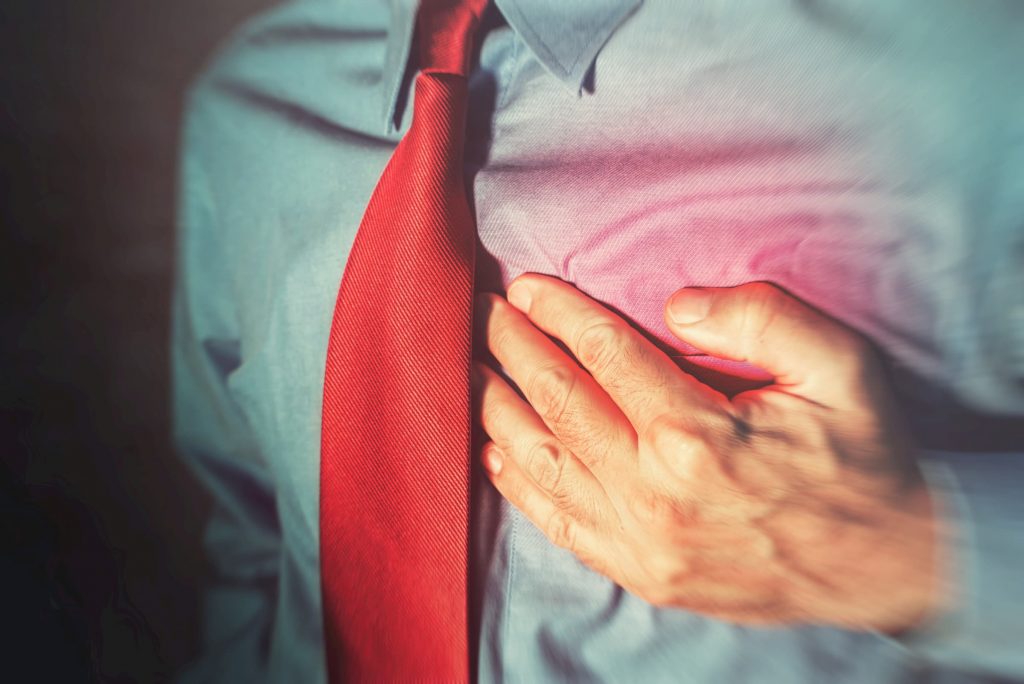Recognize the signs of a heart attack
A heart attack happens when there is a blockage in your heart. The blockage is typically made up of cholesterol or fat, which create plaque buildup in your arteries. If the plaque ruptures, it can form a clot that stops the blood from being able to pump through. Without adequate blood flow, your heart can suffer damage.
Symptoms of a heart attack
If you experience any of the follow signs or symptoms of a heart attack, call 911 or go to the nearest emergency room:
- Chest pain, chest pressure or an aching sensation that spreads to your arms or back
- Shortness of breath
- Cold sweats
- Nausea or vomiting
- Severe heartburn or stomach pain
- Fatigue
- Sudden dizziness or loss of consciousness (passing out or blacking out)
Not all people will have the same symptoms if they’re having a heart attack. Heart attacks affect men and women differently. According to the American Heart Association, women can experience:
- Chest pressure or squeezing
- Shortness of breath
- Pain in arms, back, neck, jaw or stomach
- Nausea and dizziness
Women are more often than men to experience more side effects of a heart attack including nausea and dizziness.
Men often experience:
- Chest pain or pressure
- Pain in shoulders, arms, stomach, back, neck or teeth
- Shortness of breath
- Coughing or wheezing
Heart disease is the number one killer of men and women in the United States.
If you have a medical emergency, call 911 or visit the NMC Health Medical Center Emergency Department.
Coronary Calcium Scoring
You could prevent a heart attack before it happens with a simple test. Learn if you might be a candidate for coronary calcium scoring to assess your risk of heart attack before it happens.
FAQs
To find out if you are at risk for developing heart disease, talk with your doctor. He or she will able to assess whether your risk is mild, moderate or severe.
General factors that could put you at risk for heart disease are:
- Being male
- Being older
- Being a woman who has hit menopause
- Having a family history of heart disease or heart attack
- Smoking
- High blood pressure or cholesterol
- Obesity
- Having diabetes
- Severe stress levels
- Not exercising or eating healthy
Your doctor can talk to you about some lifestyle changes that might lower your risk for heart attack. He or she can provide a treatment plan to keep your symptoms under control and lower the effects on your body to maintain your health.
Some easy tips include:
- Eating healthy and limiting salt
- Exercising regularly and staying active
- Getting a coronary calcium screening to assess your risk for heart attack
- Monitoring and working to reduce your cholesterol
- Lowering your blood sugar and maintaining your diabetes
Once you’ve had a heart attack, your doctor might suggest you go through a cardiac rehab program. NMC Health offers cardiac rehabilitation. Here, you will learn healthy lifestyle changes that may help prevent another heart attack.
Some other things you can do include:
- Stop smoking
- Eat healthy
- Exercise regularly
- Lower your salt intake
- Control your blood pressure and cholesterol levels
- Take any heart medicine as directed and prescribed by your doctor
Talk with your doctor before making any changes in your diet or exercise.
Heart Attack Education Library

Embracing Heart Health: Your Guide to Preventing Another Cardiac Event
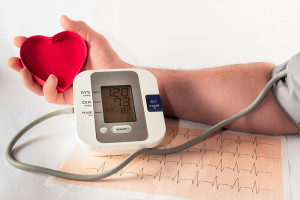
8 Ways to Reach a Healthy Blood Pressure

5 benefits of cardiac rehabilitation

Happy Valentine’s Day: how to love your partner’s heart

Choosing the right heart-healthy meals
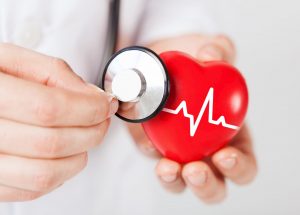
Get to know your cholesterol

Heart-healthy recipes: Confetti salad

Heart healthy recipe: Beef stew with fresh mango

Heart-healthy recipes: Matcha Mini Cakes

Heart-healthy recipes: Greek seven layer dip

Heart-Healthy Recipe: Chicken Wings with Cherry Sauce

Heart-healthy recipes: Spinach Souffle

Tropical Fruit Smoothie Bowl

Heart-healthy recipes: Spaghetti-Squash Spaghetti

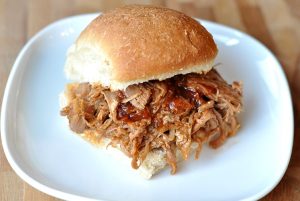
Heart-healthy recipes: Slow Cooker BBQ Chicken or Pork

The ABCs of Heart Health – Tips to Prevent Heart Disease

Heart-healthy recipes: Pico de gallo grilled chicken salad

Heart-healthy recipes: Savor the flavor of sweet & sour pork

Know your risks: How to prevent a heart attack

Heart-Healthy Recipe: Raspberry Chocolate Mini Macarons
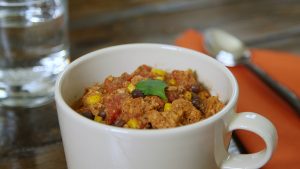
Warm up with this heart-healthy recipe for turkey chili
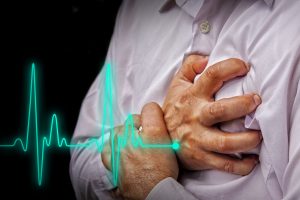
How to kick the habit: Stress – is it hurting my heart?
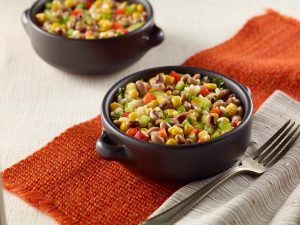
Win big with these healthy Super Bowl snacks

NMC Joins National Heart Health Program

Cardiac Rehab: An Important Step to Heart Attack Recovery

NMC to Participate in National Healthcare Decisions Day

